MercoPress. South Atlantic News Agency
Tag: Argentine economy
-
Friday, April 26th 2019 - 09:59 UTC
Second black day for Argentine markets and Peso; panic at a possible return of Cristina Fernandez and Kirchnerism
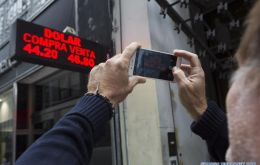
Argentine bonds and the country’s embattled peso currency fell for a second day on Thursday, cranking up the challenge facing President Mauricio Macri as his drop in the polls ahead of knife-edge elections later this year unnerves investors.
-
Thursday, April 25th 2019 - 09:59 UTC
Argentine government admits that political uncertainty is behind the current collapse of economic indexes
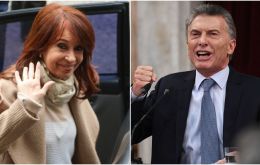
Argentine economy Minister Nicolás Dujovne stated that political uncertainty ahead of the upcoming presidential election this October is the main factor for increases in Argentina's country risk and instability on the exchange markets.
-
Wednesday, April 24th 2019 - 09:15 UTC
IMF also concerned with the increase in the poverty rate in Argentina

An official with the International Monetary Fund has declared that the increase in the poverty rate in Argentina could force the government to rethink its spending plans and “protect the poor.”
-
Tuesday, April 23rd 2019 - 09:18 UTC
Argentina managed a quarterly primary surplus during the first quarter
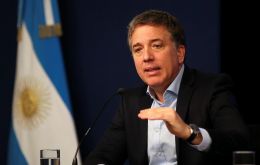
Argentina ran a primary fiscal deficit of 13.037 billion pesos (US$ 305.32 million) in March, the country’s Treasury minister Nicolás Dujovne said at a press conference on Monday, though posted a first-quarter surplus of 10.347 billion pesos.
-
Thursday, April 18th 2019 - 09:44 UTC
Macri announces freeze in the price of basic goods and in public services
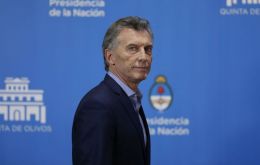
Argentina's President Mauricio Macri announced a freeze in the price of basic goods and public services on Wednesday in a bid to limit the impact of spiraling inflation that could hamper his re-election hopes in October. Hit by soaring prices due to inflation that reached almost 55% over the last 12 months, many Argentines have been calling for a change in economic policy.
-
Wednesday, April 17th 2019 - 09:58 UTC
Argentina's inflation 54.7% in 12-months; more monetary “contraction measures” and support from IMF
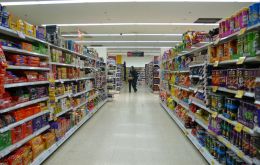
Argentina's inflation rate accelerated for the third straight month in March, the government statistics agency said on Tuesday, prompting the central bank to unveil fresh measures to temper raging inflation and protect the embattled peso currency.
-
Friday, April 12th 2019 - 21:17 UTC
Tourists are cashing in on Argentina’s economic woes

International travelers are flocking to Argentina, taking advantage of the poorly performing peso to boost the value of their holiday spending money, according to latest data.
-
Thursday, April 11th 2019 - 09:31 UTC
The Trouble with Argentina’s Economy
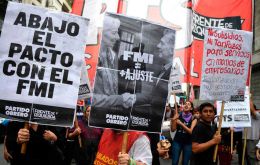
With sustained economic growth, Argentina would be able to avoid another debt crisis. Although there are no silver bullets to put the economy on a more stable path, changing current macroeconomic policies would at least give the country a chance.
-
Friday, March 22nd 2019 - 09:00 UTC
Argentine economy contracted 2.5% in 2018, after shrinking 6.2% in fourth quarter
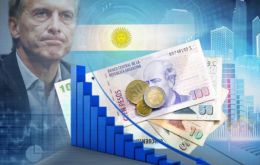
Argentina’s economy contracted 2.5% in 2018, the official statistics agency said on Thursday, as the Latin American country’s leaders struggle to revive growth after being rattled by a currency crisis and steep inflation over the past year.
-
Friday, November 16th 2018 - 12:31 UTC
Argentina's October CPI 5.4% and 45.9% in twelve months

Argentina's Consumer Price Index, CPI, increased 5.4% in October, and 39.5% in the last ten months, and 45.9% in twelve months, according to the latest report from the country's stats office, Indec. The items with the highest were Housing, 8.8%, followed by Transport, 7.6% while Food and Beverage, 5.9%.
